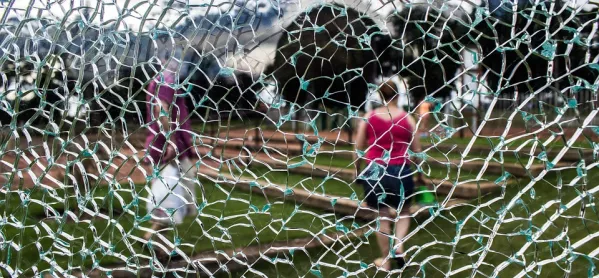Friday 24 June was my wife’s birthday - a day we are unlikely to forget. We walked in the Cotswolds, trying to absorb the implications of leaving the EU, with the weather reflecting the political mood of half the country - a lot of cloud and not much sunshine.
As the weekend progressed, I became more worried about the future. With the prime minister and most of the shadow Cabinet resigning, the leavers having won the vote but seemingly having no plans ready for what to do next, and foreigners living in England worrying about whether they will be able to stay, our famously stable democracy seems more fragile than it has at any time in my adult life.
With the speed of change accelerating by the hour, it may seem foolish to attempt to assess the implications for schools, but I think the following can be said at this stage with some certainty:
- With the political focus on Europe and internal party differences, it is unlikely that much new educational policy will emerge in the next few months. Fair funding will, alas, once again be put on the back-burner.
- With a secretary of state distracted by other matters and a new Labour shadow secretary of state unfamiliar with the detail of education policy, any education issues that do come to parliament are unlikely to receive detailed scrutiny. If Friday is normally a good day for the government to bury bad news, we are surely moving into a period where bad news will get buried every day beneath the political turmoil.
- If Boris Johnson becomes prime minister, his support for selective education may become significant. Theresa May is similarly supportive. With the influential chair of the Conservative 1922 committee, Graham Brady MP, being perhaps the strongest grammar-school supporter in the Commons, maybe the comprehensive versus grammar and secondary modern debate will re-surface. David Cameron at least had some understanding about state education in general and special schools in particular.
- There is already backtracking from the leading lights of the leave campaign about the extra £350 million per week supposedly available to the NHS, education and other public services, so schools would be unwise to expect anything other than increasing austerity over the next few years at least.
- Michael Gove has said that we have had enough of experts, so let’s not expect much evidence-based policy in education, or anything else.
- Having said all that, there are many positive things that schools can do in the current climate.
- Keep doing a great job, giving young people a great education, while the politicians indulge in their infighting.
- Remind the pupils that, although the country has voted to leave the EU, we are still part of Europe. We are Europeans, and should be proud of it.
- Enhance the importance of international aspects of the curriculum, so that young people grow up to be good citizens of Europe and the world, as well as of this country.
- Develop citizenship and political education to help young people understand the complex issues on which political decisions are made.
- Enhance the programme of school visits and exchanges abroad to increase international understanding.
- Build on the fact that the younger generation voted by a considerable majority for remain.
- Look after any foreign pupils who may be feeling insecure.
- Come down particularly hard on any incidents of racism. Redouble efforts to build a community based on tolerance of others, mutual respect and the belief that diversity is a strength.
- David Cameron called this referendum in order to nullify the effect of Ukip and the right wing of the Conservative party. In the end, both have been strengthened by the campaign and the referendum result, while he has lost his job. Memo to school leaders - don’t make short-term decisions. They may well have more long-term consequences than you realise.
John Dunford is chair of Whole Education, a former secondary head, general secretary of the Association of School and College Leaders and national pupil premium champion. He tweets as @johndunford
Want to keep up with the latest education news and opinion? Follow TES on Twitter and like TES on Facebook




